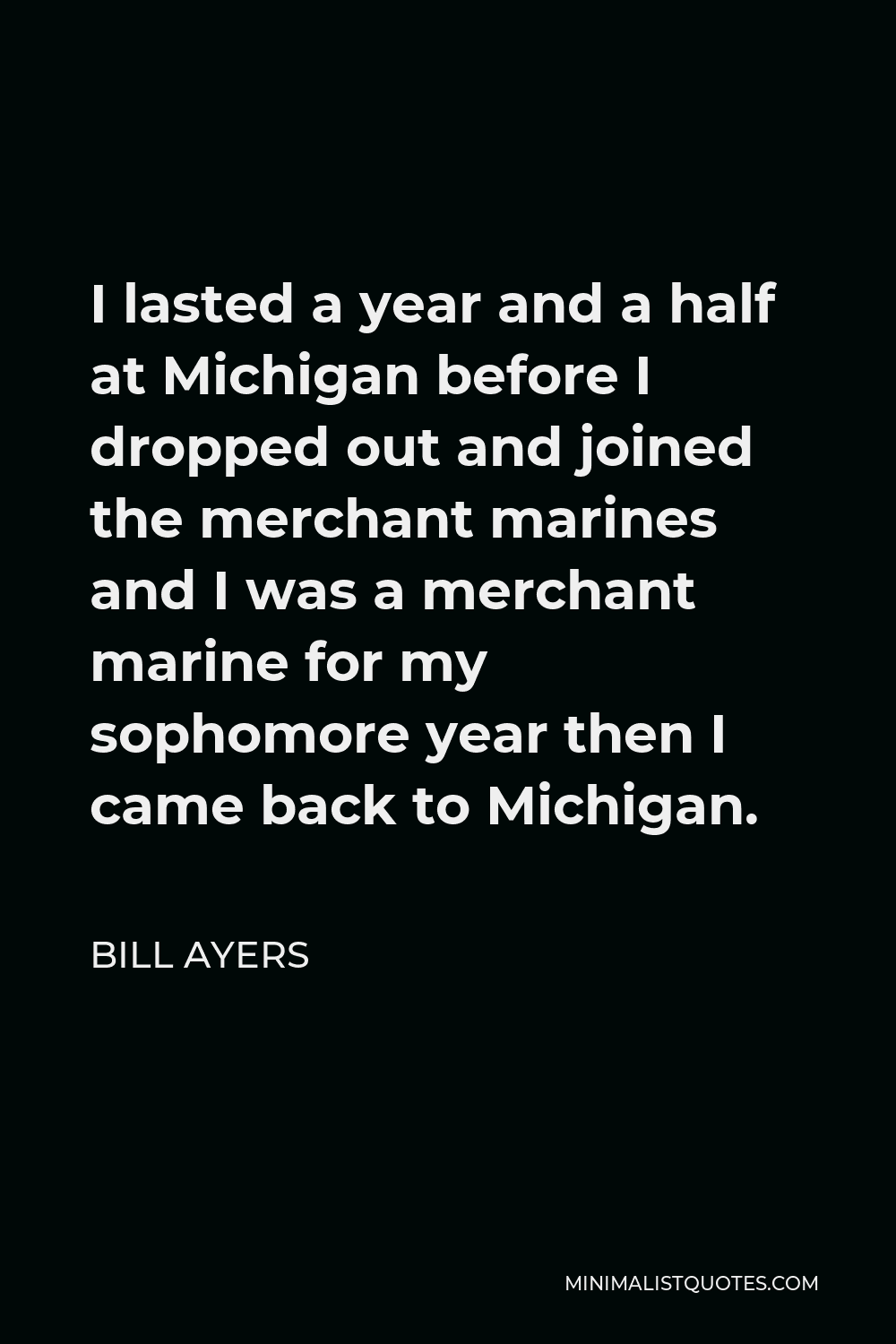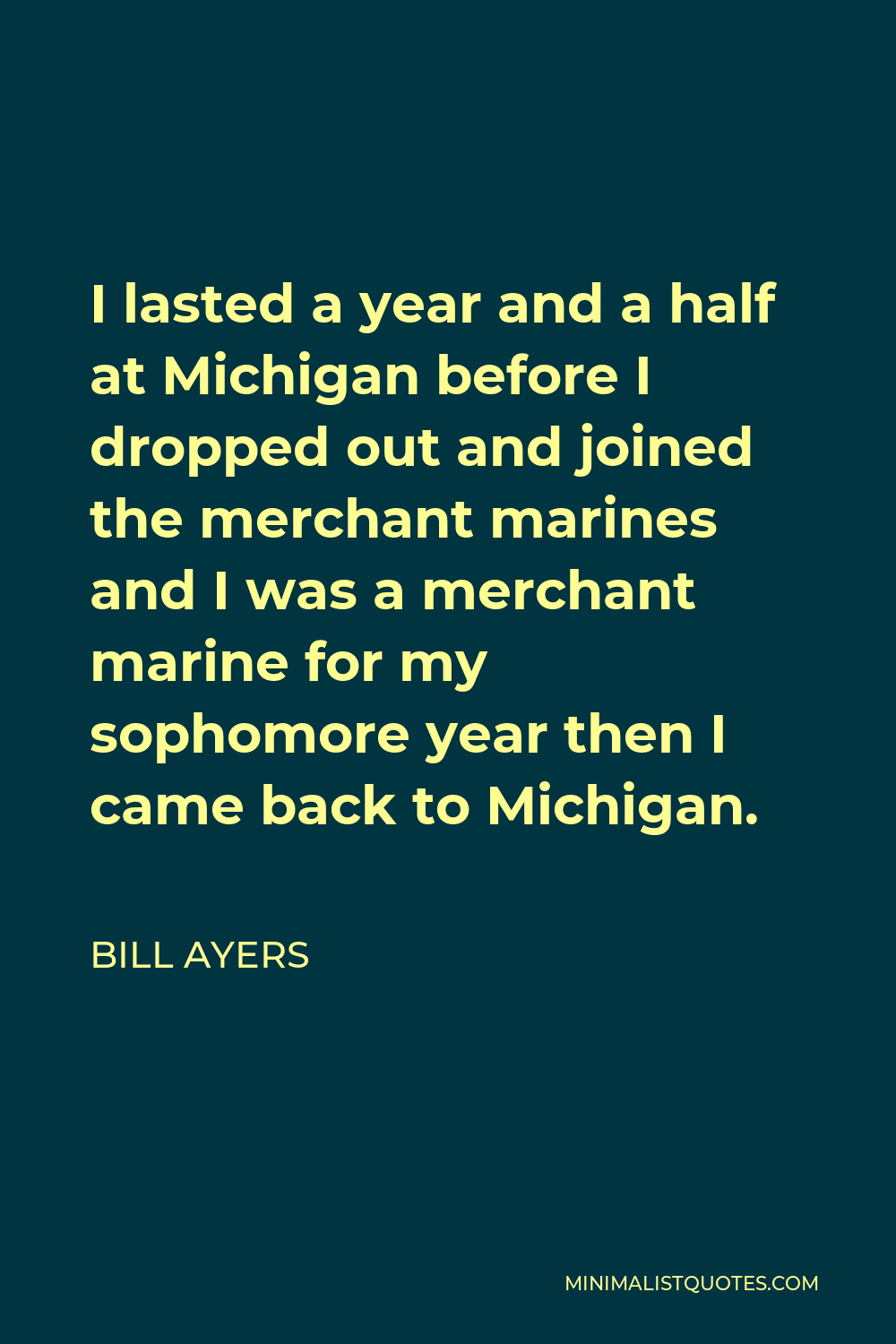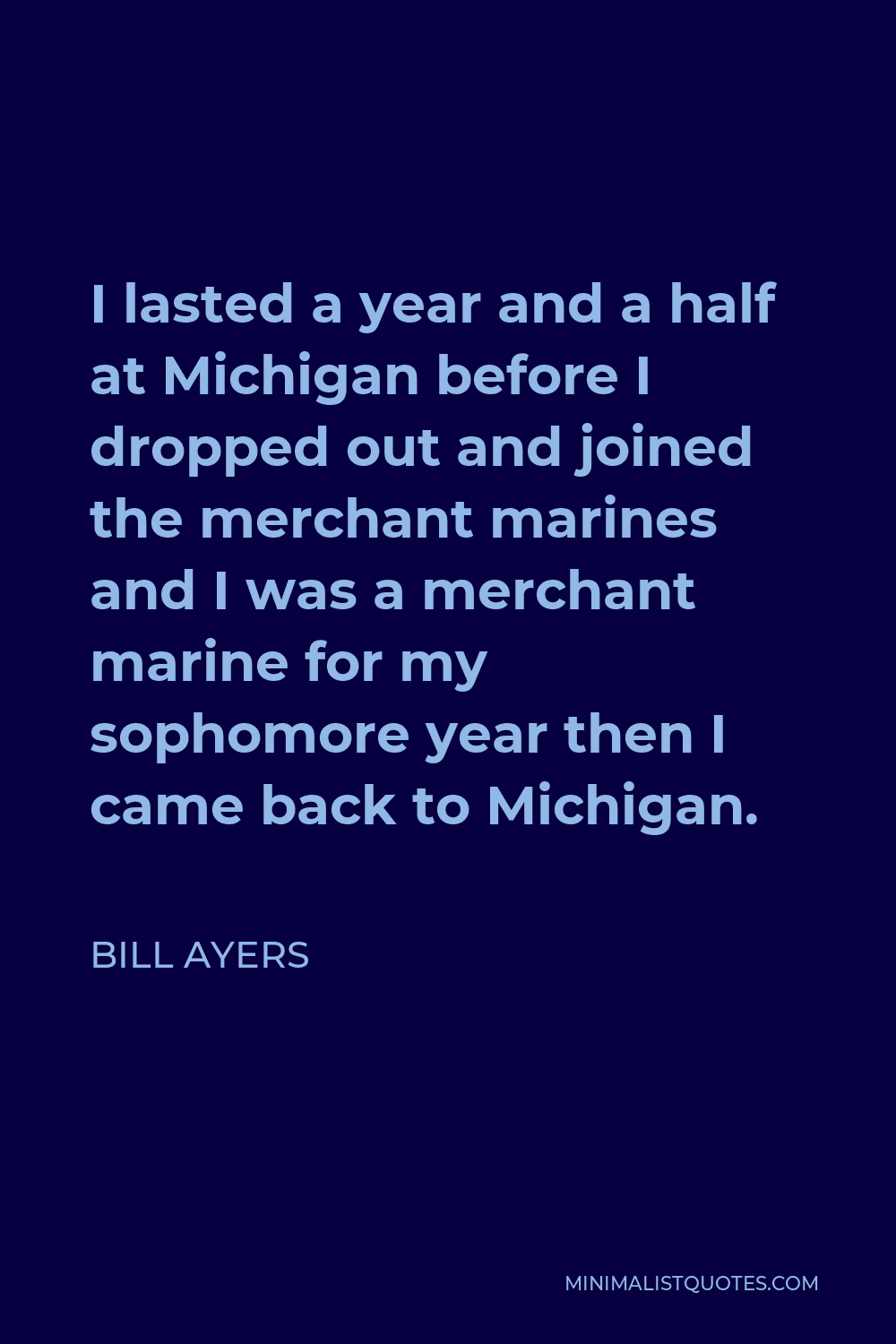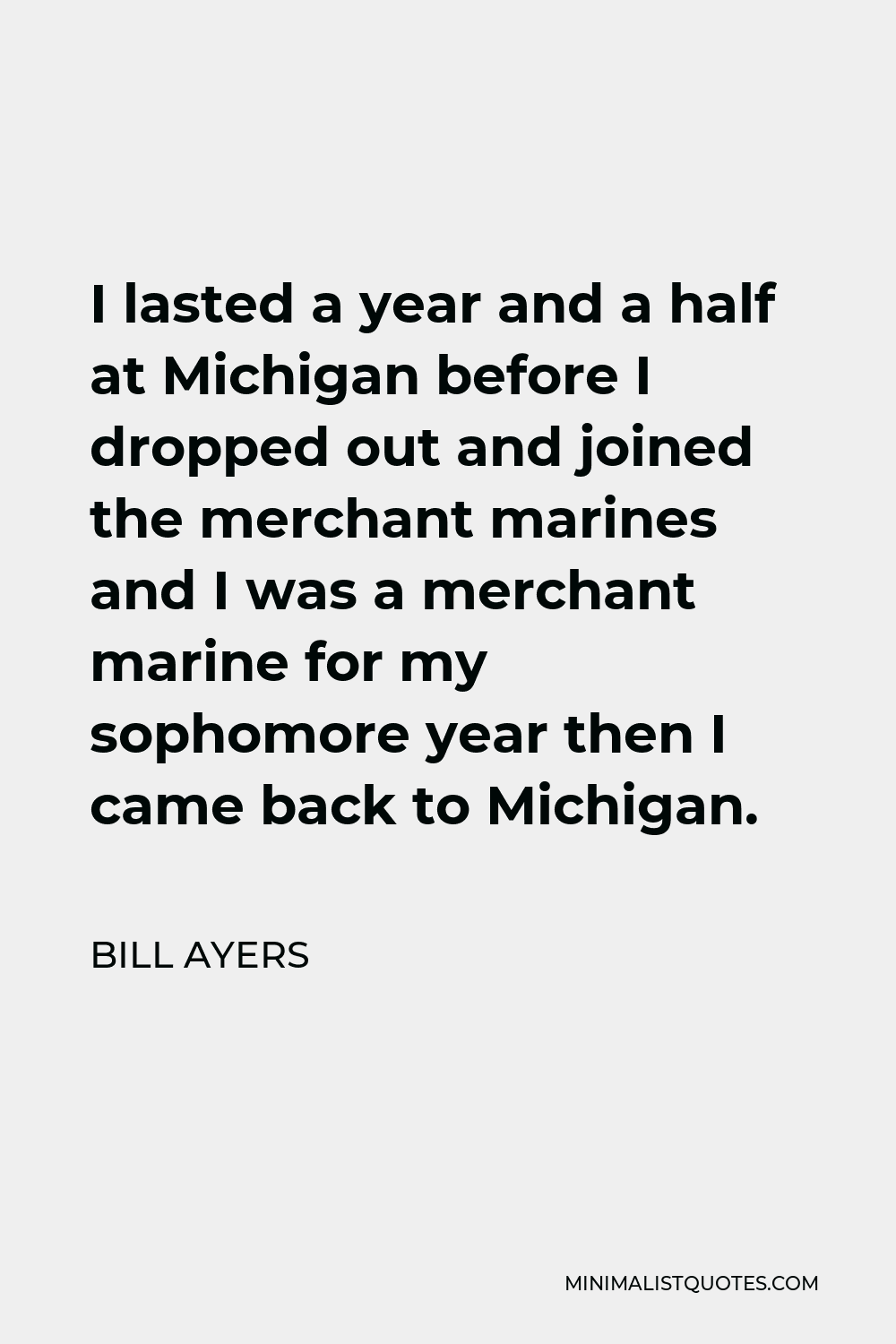All of us pursued our own passions and our own interests. One of my brothers was filmmaker. One of my brothers was a teacher. My sister was a librarian.
BILL AYERSI lasted a year and a half at Michigan before I dropped out and joined the merchant marines and I was a merchant marine for my sophomore year then I came back to Michigan.
More Bill Ayers Quotes
-





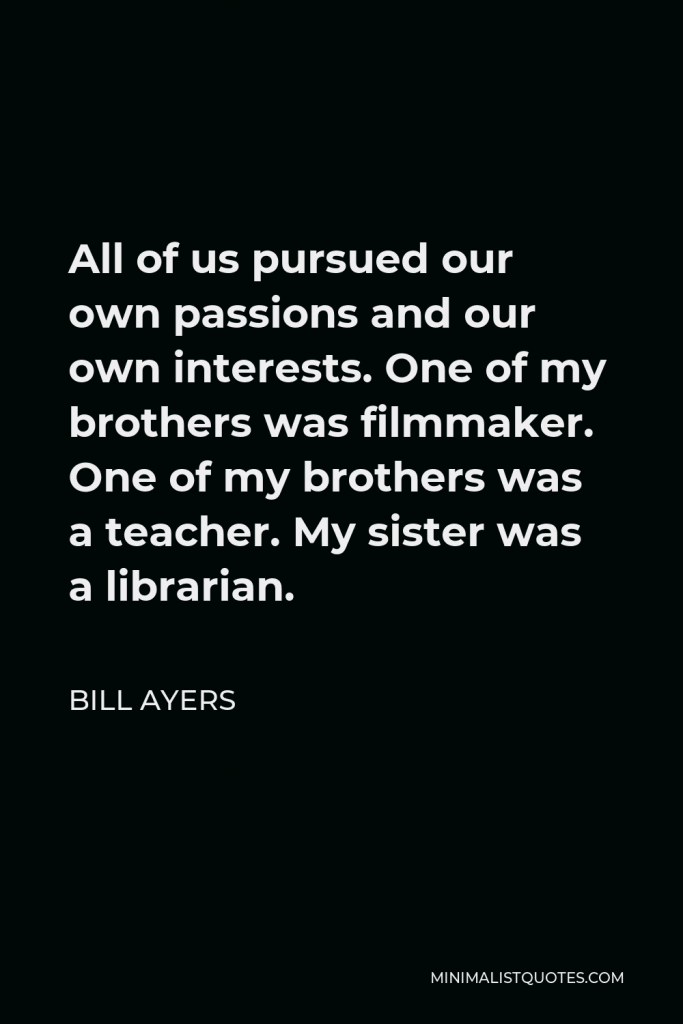

-





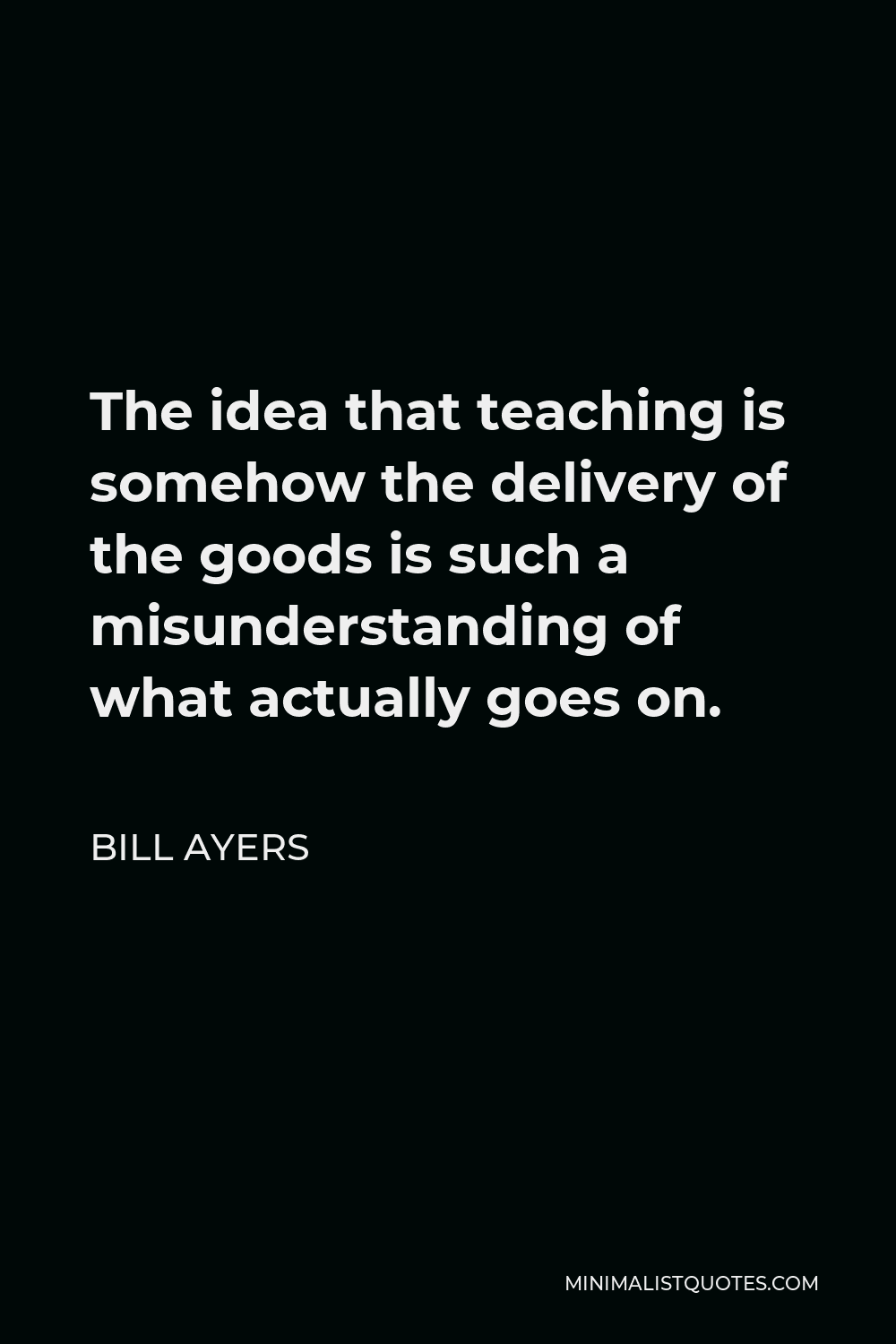
The idea that teaching is somehow the delivery of the goods is such a misunderstanding of what actually goes on.
BILL AYERS -





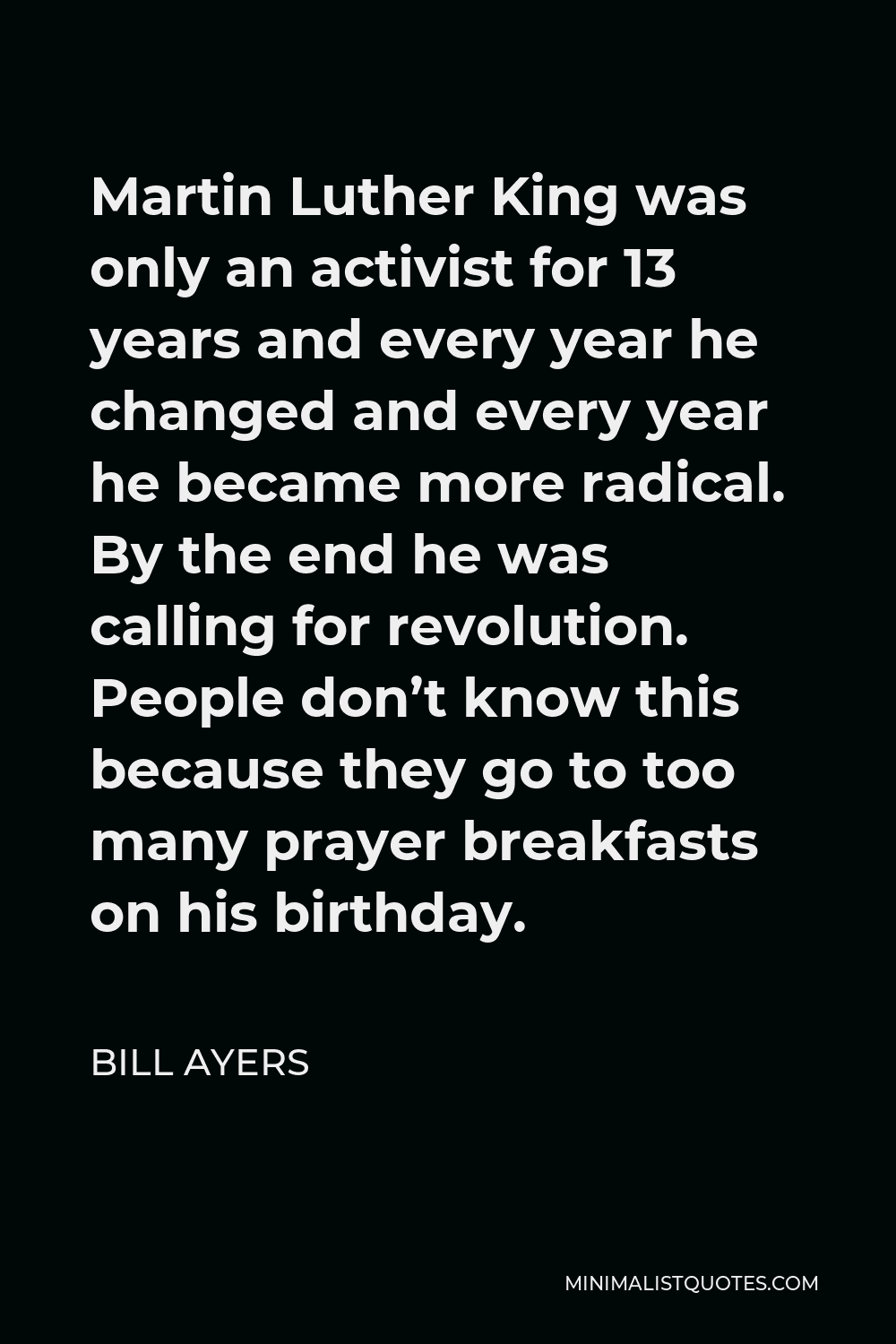
Martin Luther King was only an activist for 13 years and every year he changed and every year he became more radical. By the end he was calling for revolution. People don’t know this because they go to too many prayer breakfasts on his birthday.
BILL AYERS -






I suffer from a genetic flaw, which is that my mother was a hopeless Pollyanna.
BILL AYERS -





![Bill Ayers Quote - I’m wary of government. Part of [the Tea Party] impulse is to dislike and be worried about the rich. I’m that way too. So I don’t find them to be as atrocious as most people do, as your liberals do. I’m not a liberal.](https://minimalistquotes.com/images/im-wary-of-government-part-of-the-tea-party-impuls.jpg)
I’m wary of government. Part of [the Tea Party] impulse is to dislike and be worried about the rich. I’m that way too. So I don’t find them to be as atrocious as most people do, as your liberals do. I’m not a liberal.
BILL AYERS -





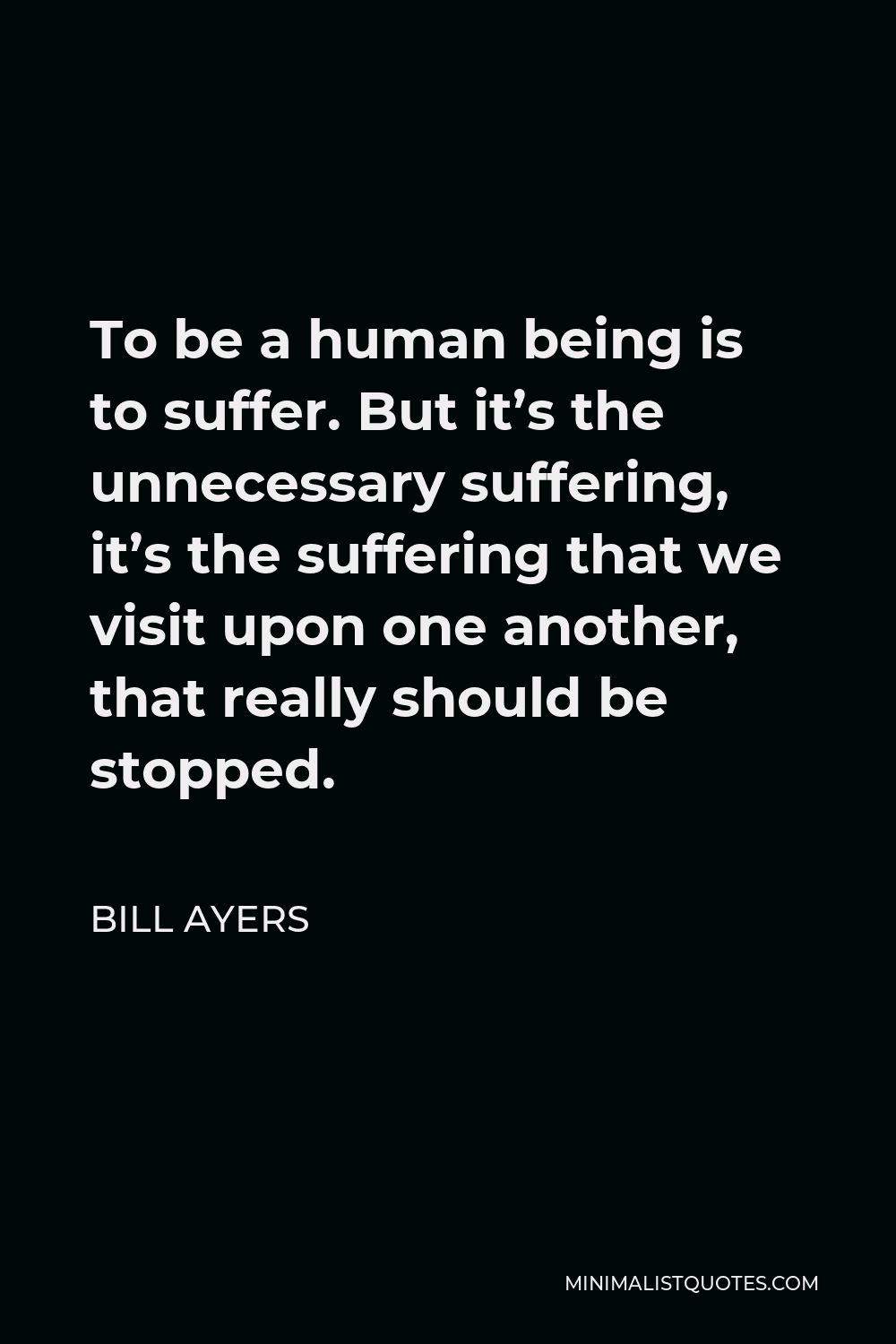
To be a human being is to suffer. But it’s the unnecessary suffering, it’s the suffering that we visit upon one another, that really should be stopped.
BILL AYERS -






I’m writing this book right now called Pallin’ Around, and the subtitle is: “Talking to the Tea Party.” And frankly I find talking to the Tea Party exhilarating, I love it.
BILL AYERS -





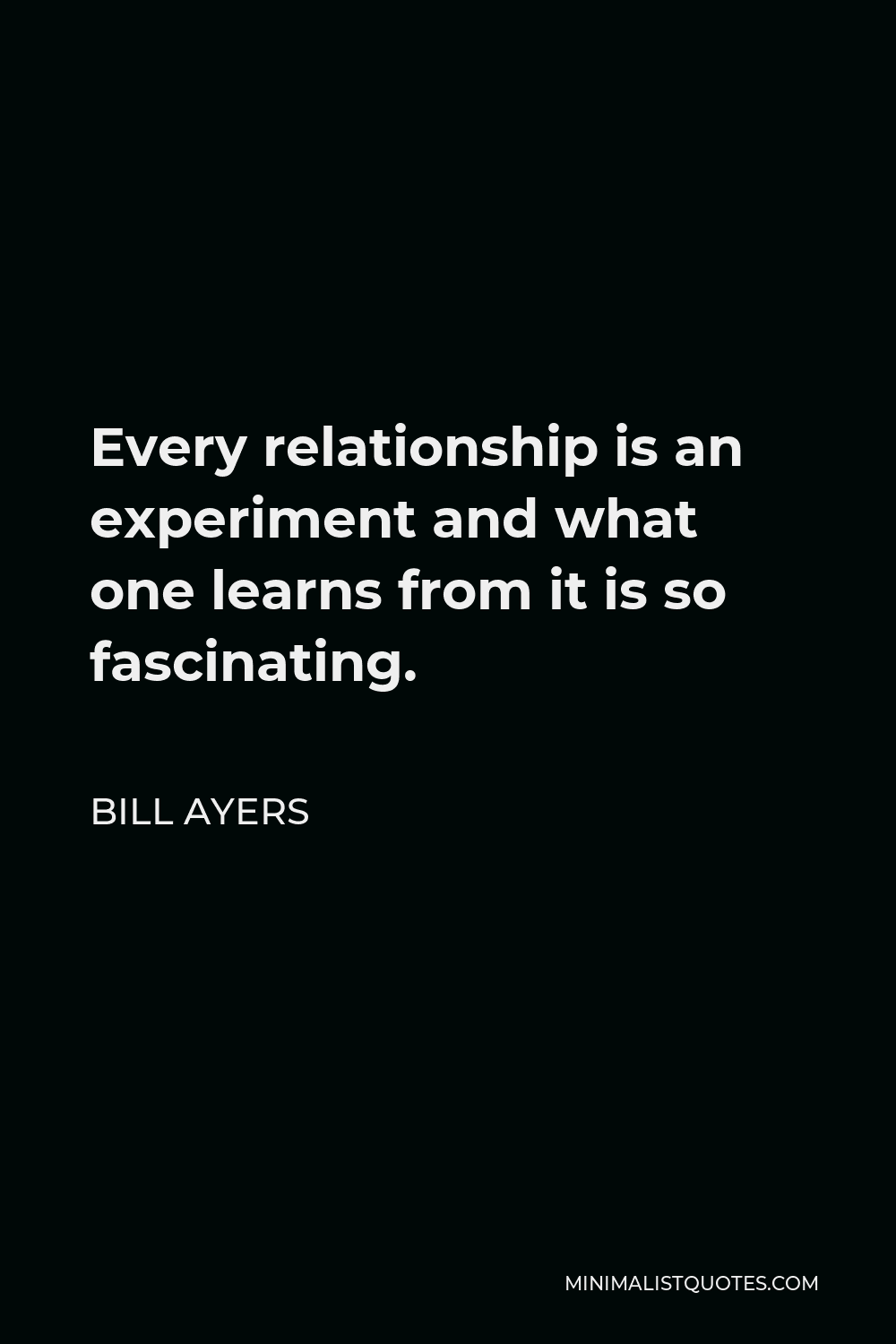
Every relationship is an experiment and what one learns from it is so fascinating.
BILL AYERS -





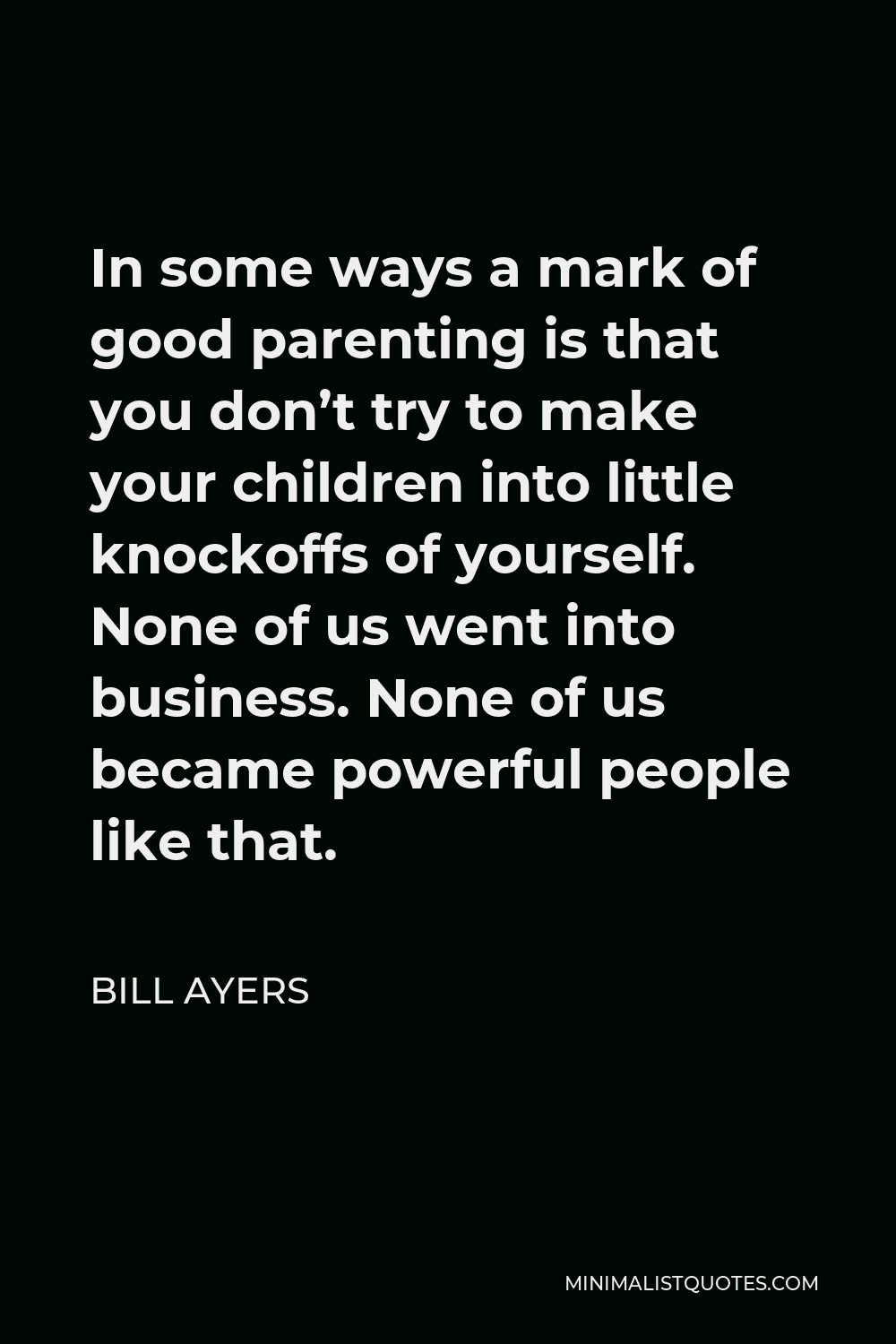
In some ways a mark of good parenting is that you don’t try to make your children into little knockoffs of yourself. None of us went into business. None of us became powerful people like that.
BILL AYERS -





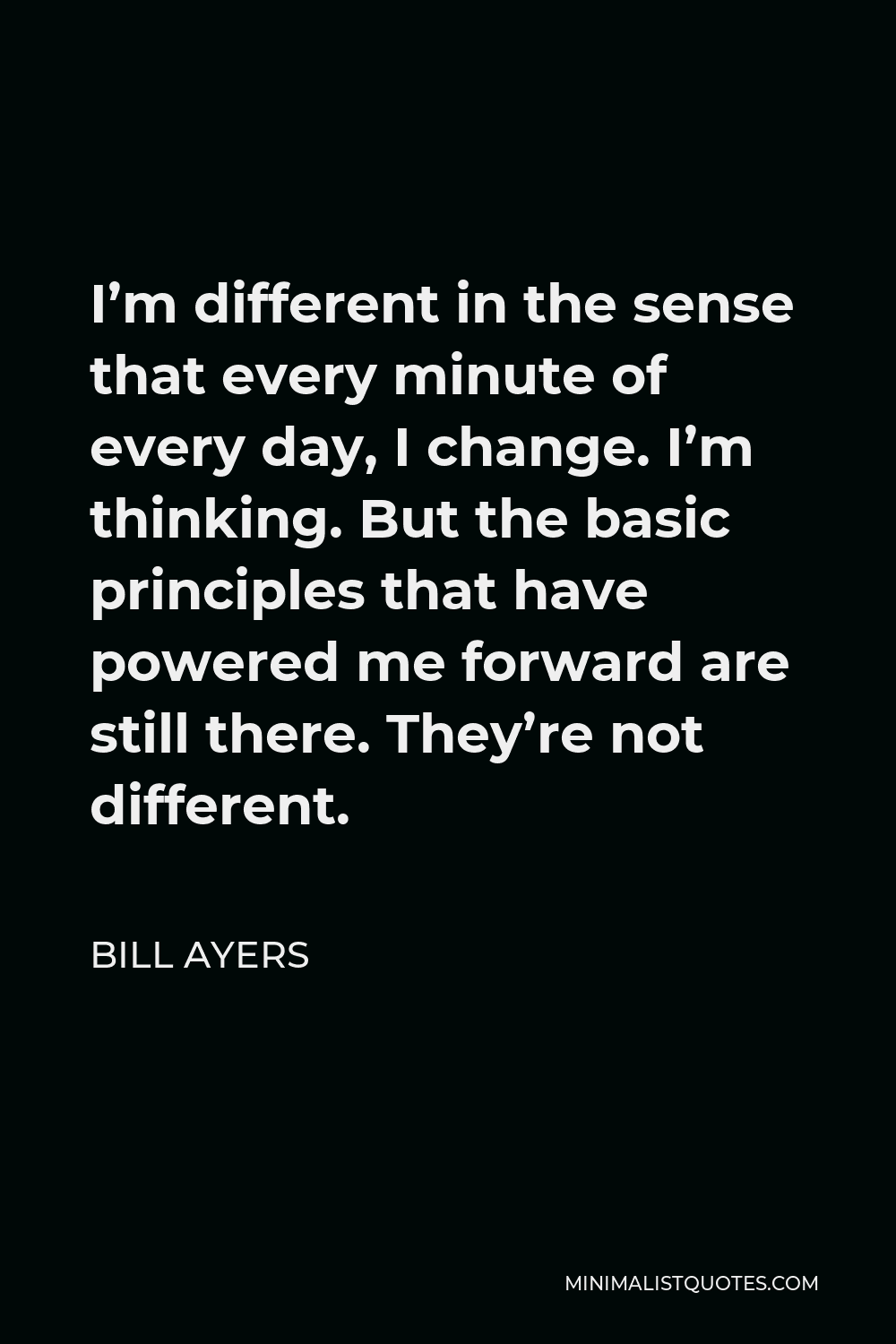
I’m different in the sense that every minute of every day, I change. I’m thinking. But the basic principles that have powered me forward are still there. They’re not different.
BILL AYERS -





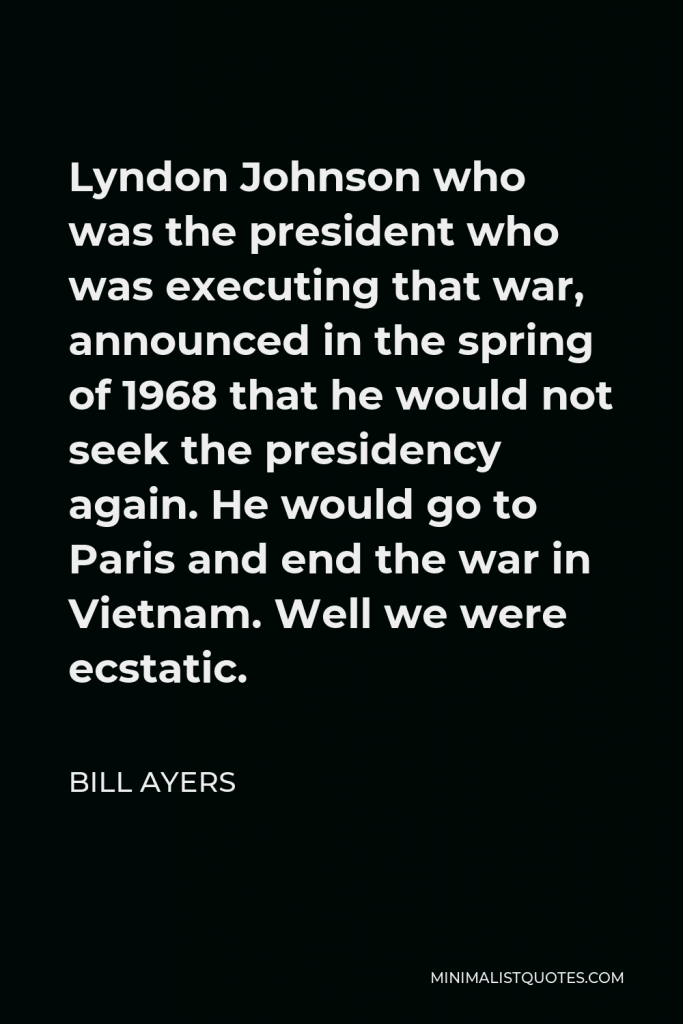

Lyndon Johnson who was the president who was executing that war, announced in the spring of 1968 that he would not seek the presidency again. He would go to Paris and end the war in Vietnam. Well we were ecstatic.
BILL AYERS -





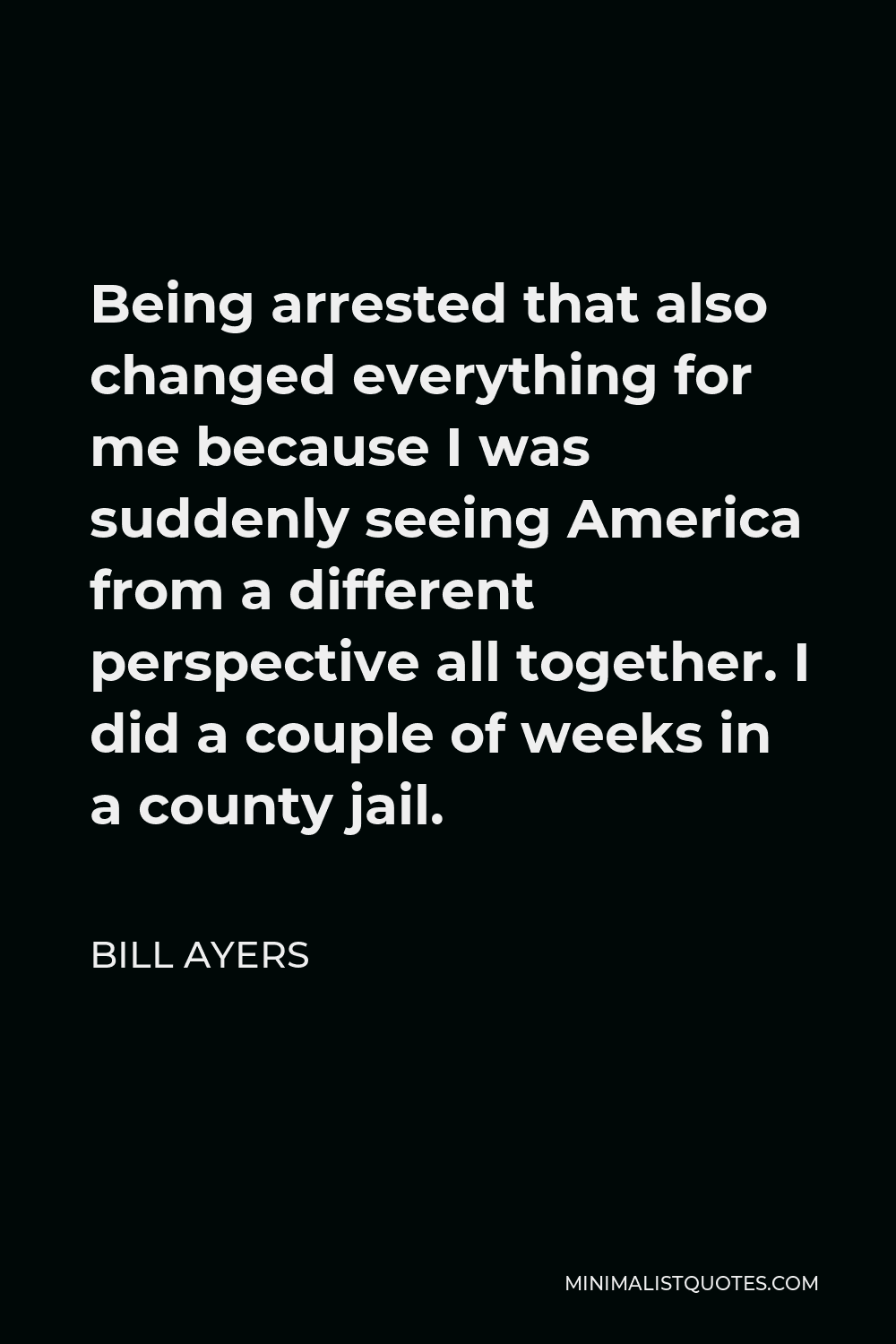
Being arrested that also changed everything for me because I was suddenly seeing America from a different perspective all together. I did a couple of weeks in a county jail.
BILL AYERS -





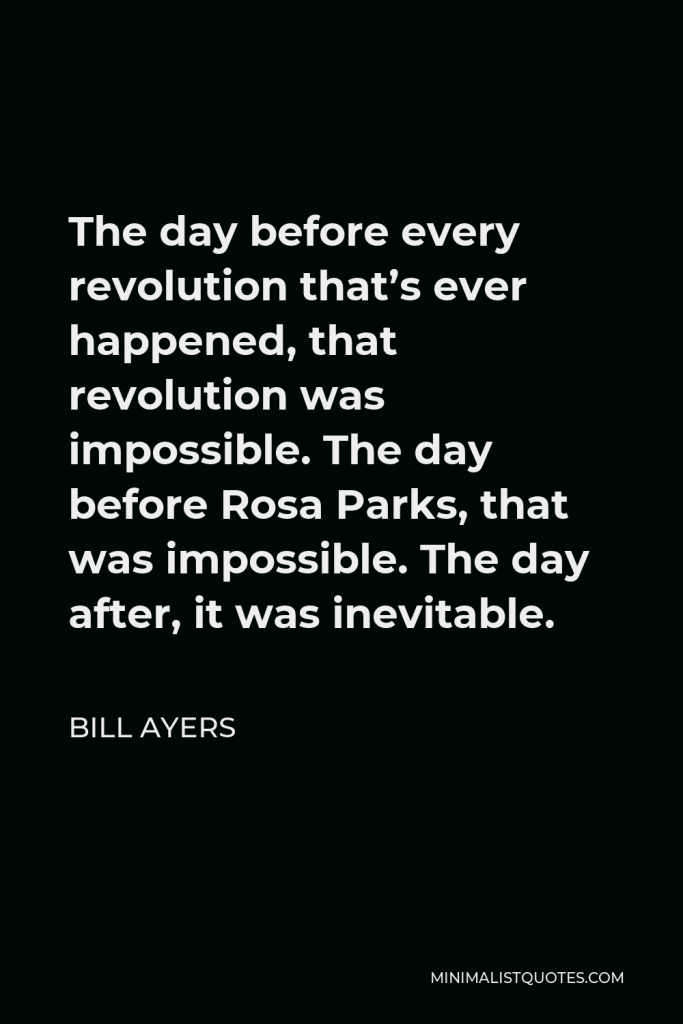

The day before every revolution that’s ever happened, that revolution was impossible. The day before Rosa Parks, that was impossible. The day after, it was inevitable.
BILL AYERS -





![Bill Ayers Quote - Well, first of all I think that we have to be careful with terms like the working class, obviously. When [Karl] Marx wrote about the working class he was writing about something much more bounded than we’re talking about.](https://minimalistquotes.com/wp-content/uploads/2022/12/well-first-of-all-i-think-that-we-have-to-be-caref-683x1024.jpg)

Well, first of all I think that we have to be careful with terms like the working class, obviously. When [Karl] Marx wrote about the working class he was writing about something much more bounded than we’re talking about.
BILL AYERS -





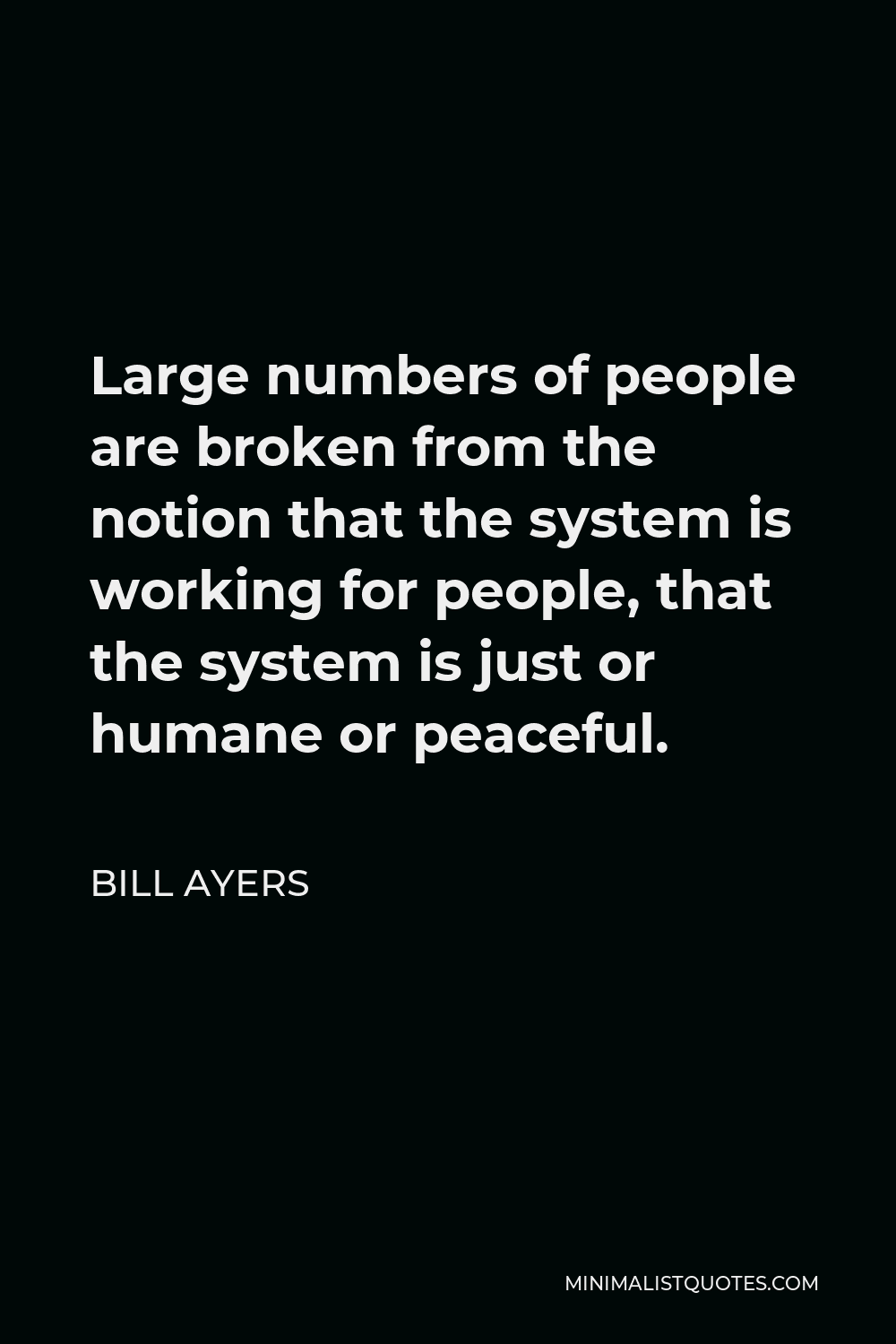
Large numbers of people are broken from the notion that the system is working for people, that the system is just or humane or peaceful.
BILL AYERS -






Everything was absolutely ideal on the day I bombed the Pentagon.
BILL AYERS
